John Kerry Announces $800 Million For Climate Adaptation at COP21
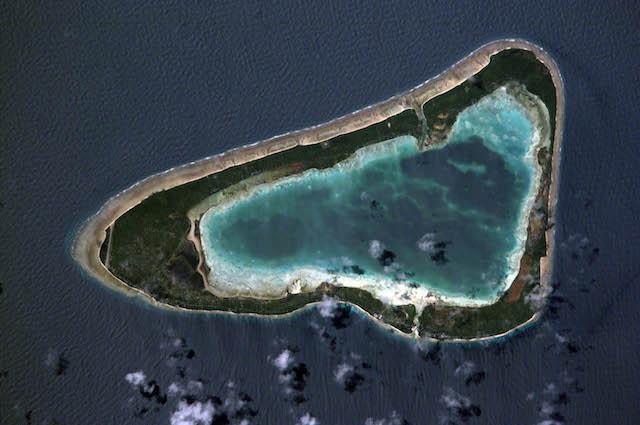

It's "crunch time" here in Paris as the deadline for an historic climate agreement is now just just hours away. With release of the latest draft text this afternoon, the issues of loss and damage and adaptation remain among the core points left for ministers to hammer out by Friday.
In a speech on Wednesday afternoon, Secretary of State John Kerry said the United States will double its climate finance for adaptation to $800 million by 2020. The money will be used to help the world's most vulnerable countries adapt to the impacts of climate change. As Kerry explained in his speech, it is a "moral responsibility to adapt and prepare for those impacts and enable the most vulnerable among us to do the same.
"There are countries – we know – for which climate change is an existential threat today," Secretary Kerry said. "For them, this isn’t a matter of annexes or peak years – it’s a matter of life and death. Yesterday I met with leaders from the island states – the small island states – who expressed their legitimate concerns that the sea will swallow their nations. And the fact of the matter is that most of these countries have contributed nothing, or next to nothing, ... to the problem in the first place."
Broad support
Leaders from across the civil spectrum praised Kerry's comments, suggesting that an ambitious and fair deal in Paris is still very much on the table. Alden Meyer, director of strategy and policy for the Union of Concerned Scientists (UCS), said: "Secretary Kerry sounded the right notes on urgency and the need for much greater ambition in coming to grips with the climate crisis,"
“The prize of an ambitious, comprehensive and effective long-term climate agreement is within our grasp," Meyer continued, "if compromises can be found on the remaining crunch issues. Secretary Kerry has long been a leader on the climate issue, and his leadership will be needed more than ever over the remaining days of the climate talks here in Paris.”
Faith leaders emphasized that an ambitious global commitment to climate adaptation aligns with our values as a nation and as civilized human beings.
"Increasing our commitment to protect the most vulnerable is the right thing to do," said Rev. Fletcher Harper of GreenFaith. "[It is] deeply consistent with our moral values. Faith communities support this. We'll let Congress know we support it. And, we'll push for continuing, increasing support for this vital cause."
National security expert and Iraq war veteran Jon Powers made the connection between climate change and national security, saying a commitment to adaptation will "increase our national security by ensuring the populations at risk of becoming future threats have the resources needed to address both the root causes and also the consequences of climate change.”
“It is important that we not squander this opportunity to design climate adaptation financing to do the most possible to help societies steer clear of the climate-triggered humanitarian crises that now plague our world. Getting enough money on the table is only part of the solution. Directing that money in support of safe adaptation pathways is just as crucial.”
Still on track
Kerry's announcement helps send the signal needed as ministers engage on the hardest, yet most essential, elements of a fair and ambitious Paris Outcome. That we have come this far and all eyes remain on the prize is cause for optimism.
As Rachel Cletus, lead economist and climate policy manager with the Climate and Energy program for UCS, told TriplePundit this morning, "By this time in Copenhagen (at COP15), things had already gone off the rails."
We are still on track. And Kerry's pledge today for increased climate adaptation funding helps us move forward.
Image courtesy of Wikipedia, under creative commons license
Loss & Damage: Penultimate Challenge for Successful Climate Agreement
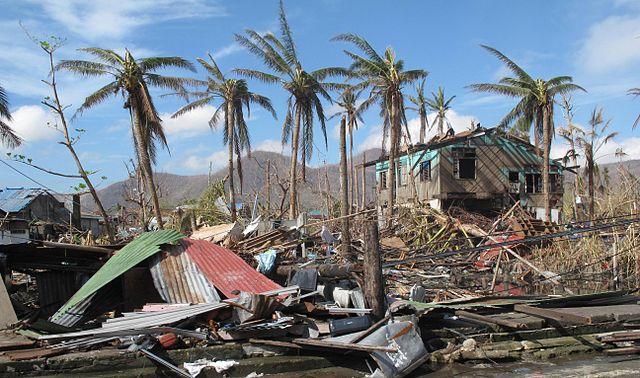

The latest draft Paris climate agreement was released on Wednesday at 3 p.m. European Time, and it has yet to resolve one of the most crucial and contentious issues, one that, according to experts here in Paris, may take until to the last minute to resolve: Loss and damage.
“Loss and damage means when your preparation fails, or the disaster overwhelms your preparation, because the scale of the disasters is huge or you did not prepare on time,” said Harjeet Singh with Action Aid, adding that this is a major issue for developing countries, which are, mostly, pushing very strongly for the inclusion of loss and damage in the agreement.
The current state is partly a mystery because, at the behest of developed countries, all the meetings about loss and damage have taken place in closed-door sessions, not open to civil society or the press. Right now, the text on loss and damage remains unchanged from Saturday, and may just be a placeholder inserted by the French presidency until a real agreement is hammered out.
“Rich countries are fighting back against loss and damage," said Julie-Anne Richards with the Climate Justice Program, during a press conference. “They are creating a bogeyman that does not exist,” she added, citing wealthy countries' continued resistance to any language around liability or compensation, both of which developing countries agreed to remove well before the Paris climate talks began.
Loss and damage is crucial to an equitable and fair Paris agreement. While the biggest focus in climate negotiations up to this point has been on mitigation (stopping emissions) and adaptation (preparing for climate impacts), loss and damage is nearly as, if not more, important.
“These are extremely new challenges – we don't have much experience dealing with sea-level rise [or] glacial melt at this scale. How do you do that?” Singh asked. “Loss and damage is about investing heavily in social protection systems, helping people when there are disasters and restoring their livelihoods.”
The vast majority of civil society organizations agree with developing countries that loss and damage must have its own section in the agreement and should not be folded into the adaptation section of the text. They also want a strong mechanism to determine how loss and damage is realized over time, as we begin to see more climate disasters.
The United States in particular has been cited as an opponent of a strong loss and damage mechanism. We are, of course, the largest historic emitter of CO2, and we therefore have the largest “carbon debt” to pay to the developing world. But another reason that the United States may so reticent to allow for liability in the agreement is actually quite simple. Fossil fuel lobbies.
Exxon-Mobil, quite possibly the biggest corporate source of CO2 emissions, is facing a lawsuit from New York state for its years of climate-denial support. In fact, a report released on Tuesday by researchers from Canada and Vanuatu, a Pacific island nation that was recently devastated by a super-typhoon, showed how national laws could be used to hold oil, gas and coal companies accountable for climate change-related disasters.
And it should be. If fossil fuel companies knowingly withheld information about climate change, then they are responsible for the impacts that are hitting the poor today.
We all know how much fossil fuel companies donate to political campaigns. Now is the time to remind the United States, Canada and other developed countries at COP21 that they are not there to represent old industries, but to represent us, their citizens, who demand real climate action. Loss and damage must be part of the Paris agreement, and it must be as strong as possible, because it is just fair. We cannot put the burden of climate action on those who did the least to contribute to the problem. We have to pay our fair share.
Negotiations will take place, quite likely, until late tonight. This could be the last chance for there to be real changes made, including ensuring that the final text includes a section on loss and damage that allows for a displacement mechanism – for those who are forced to move due to climate change – and an institution that can used science-based knowledge to figure out how best to assist affected communities.
“At this stage, the important thing is to decide that there should be a mechanism, and then determine it at a later stage,” said Dean Tony La Vina, with the Philippines delegation, one of the strongest advocates for loss and damage.
Let's hope the United States, Canada and all the other opponents listen and agree tonight, and in the next few days, decide to include this crucially important component in the final text.
Image credit: DFID
The Leaders at COP21: The Climate Vulnerable Forum
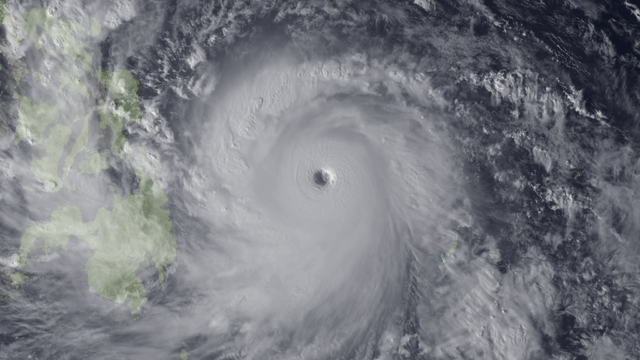

One of the challenges of coming to an agreement in Paris is that climate change won't affect everyone equally. Some regions will, in fact, benefit from warmer temperatures, though most of the world will not. Within that scheme are those countries who, due to location, geography or size, are especially vulnerable, and they have come together to form a powerful group pushing for a strong, binding agreement.
That group is the Climate Vulnerable Forum (CVF), made up of 43 member-countries, including more than 20 who joined at the onset of COP21. They are the true heroes at COP21, pushing for a 1.5-degrees Celsius limit, the one backed by science. They are against the 2-degrees limit which many developed countries (including the United States) want, because that would leave many of its members facing some serious climate impacts.
"Everyone has to really commit themselves to climate action, and we, the CVF, believe that 1.5-degree temperature goal will be the driver of climate action," said Philippines CVF chair, Emmanuel de Guzman, during a press briefing. The Philippines, which has seen devastating impacts from climate change, most notably Typhoon Haiyan two years ago, is now the chair-country of the CVF and is pushing hard for a strong agreement.
Twenty-one years into the United Nations climate change negotiating process, it is fervent inaction and grandstanding by developed countries (and fossil fuel lobbies) that has led us to where we are today – still lacking a strong global treaty. This is a clear-cut issue of climate justice. The CVF countries contributed very, very little to global carbon emissions, yet they are on the front lines of climate impact. The fact that developed countries refuse to make commitments that would protect CVF countries like the Maldives, Bangladesh and the low-lying islands nations of the Pacific Ocean, such as Vanuatu, is a grave global injustice.
"It's like when a lizard's tail is caught by a predator — it will break it off so that it can escape. These vulnerable countries are in danger of becoming the lizard's tail, and of being sacrificed while the rest of the world escapes the perils of climate change," said Mohamed Adow, with Christian Aid, in a statement.
That being said, there has been progress at COP21. Today, the goal of 1.5 degrees has the support of over 100 countries, a big shift from just a few weeks ago, though whether or not it will be included in the eventual agreement remains to be seen. But that is not enough unless that goal comes along with a concrete decarbonization plan.
"When we peak and how rapidly we decline is important," Guzman said. "We need to start as early as possible, before 2020 – with a large support package to increase ambition. If we wait [until] after 2020, [it] will be hard to reach our goal." In that vein, the CVF wants to see a strong ratchet mechanism, five-year cycles which allow for readjustment of goals based on science, and a full commitment to climate finance that would allow developed countries to pay off their climate debt to the developing world, which will not be able to grow their economies in the same carbon-intensive manner as we did.
Let us heed their call. The CVF's presence and strong push for action is a stark reminder that what is at stake in Paris is not just profits, but also the livelihoods of millions around the world. They first came together in 2009, at the failed Copenhagen talks, and, now, seven years later, the clock is ticking as climate change gets worse and worse. They have waited far too long.
"We cannot afford another Copenhagen. Everyone will have to ensure that we conclude with an agreement based on solidarity based on climate change," Guzman said.
Image credit: Japan Meteorological Agency
Gallery: Protest Against Engie, a Fossil Fuel Sponsor of COP21
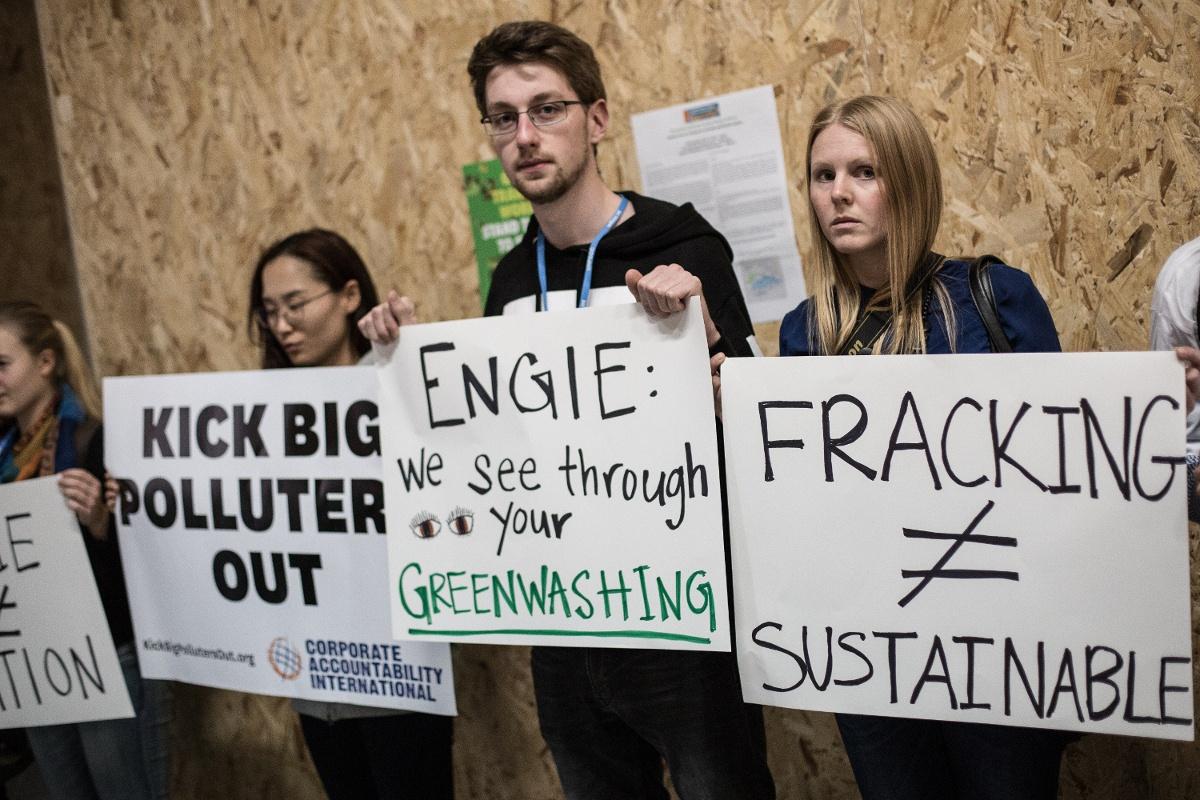

Earlier this week, we wrote about the absurd sponsorship of the UNFCC Paris COP21 climate talks by several fossil fuel-connected companies. Yesterday, one of those sponsors, Engie, was scheduled to host a sponsored discussion on energy intermittancy at the civil society space here in Paris.
What the company wanted was a showcase to greenwash its very anti-climate actions. What it got instead was a powerful civil society action -- in which dozens of silent protesters stood along the entryway to Engie's talk, holding up signs and voicing their opposition to the company's presence at the climate negotiations.
In fact, there were almost three times as many people gathering around the protest outside than were in the quiet, drab and, frankly, boring Engie talk. Everyone in the civil society space – and there were hundreds – could not have been made more aware of the fact that Engie was a big polluter trying to buy its way out of accountability.
Image credits: William Tan
Academics on the Take: Mounting Evidence of Fossil Fuel-Funded Climate Denial


Greenpeace revealed today the results of an undercover investigation showing how fossil fuel companies secretly pay academics from leading U.S. universities "to write research that sows doubt about climate science and promotes the companies’ commercial interests," reported Lawrence Carter and Meave McClenaghan on EnergyDesk Greenpeace on Tuesday.
Reporters from Greenpeace U.K. posing as representatives from coal and oil companies approached professors from Princeton and Penn State, asking them to author papers promoting the benefits of carbon dioxide and the use of coal in developing countries. The professors told the reporters they'd write the papers with no need to disclose the source of the funding.
This new revelation fits "squarely within the pattern" prompting the New York attorney general to launch an investigation stemming from recent reports from InsideClimate that "Exxon knew" for decades, from its own internal research, of the consequences of continued burning of fossil fuels on the climate.
The tip of the iceberg
"We are encountering more and more evidence of the fossil fuel companies, coal companies, and oil and gas companies literally paying people money to sow doubt about climate," Ken Kimmell, president of the Union of Concerned Scientists, told GlobalWarmingisReal and TriplePundit on Tuesday at the COP21 climate conference in Paris.
"And this is despite the fact that their own scientists, in many cases, have told them that global warming is real, that it can't be refuted. In fact, some of their own scientists themselves have refuted some of the contrarian scientists that these companies are funding."
"We really need a broader investigation. Not just of ExxonMobil, but many of these other companies. It's not allowed," Kimmel continued, "that you can sell a product and then deliberately mislead people about the harm associated with it. That's fraud"
Praising the work of Greenpeace for its investigation, Kimmel added that it is still a haphazard approach.
"We need a systematic investigation to uncover all the information so we know fully what we're dealing with," Kimmel said. "This may be the tip of the iceberg. We don't know."
Within his skill-set
Among the things we do know is how sociologist Frank Clemente, a professor at Penn State, said it was "within his skill-set" when asked if he could produce a paper countering research linking pollution from fossil fuels to millions of premature deaths annually. Clemente said he could be quoted using his Penn State professorship for attribution, and he set his price list at $15,000 for an eight- to 10-page report and $6,000 for a newspaper op-ed. When asked about funding disclosure, Clemente reportedly said, “There is no requirement to declare source funding in the U.S.”
Not surprisingly, according to the Greenpeace report, Peabody Energy uses Clemente's services on a regular basis.
Another academic for hire is Professor William Happer of Princeton University. For $250 an hour, Happer will promote the "benefits of CO2."
Happer was paid $8,000 by Peabody Energy in return for testimony in a key Minnesota state hearing on the impacts of CO2 on climate. Happer, a physicist and not a climate scientist, was also slated to appear as a "star witness" in senate hearing on Tuesday, called by Sen. Ted Cruz (R-Texas).
Eroding trust
Kimmel said the continuing disclosure of the ways in which fossil fuel companies have knowingly and purposefully misled the public "will have an effect."
"It will impact the social license of these companies to operate and be influential in the public sphere," Kimmel told us. "And I think with more of this evidence coming out people will call for them to be held accountable."Image credit: Flickr/Kevin Dooley
The Business Imperative for International Carbon Price Signals at COP21
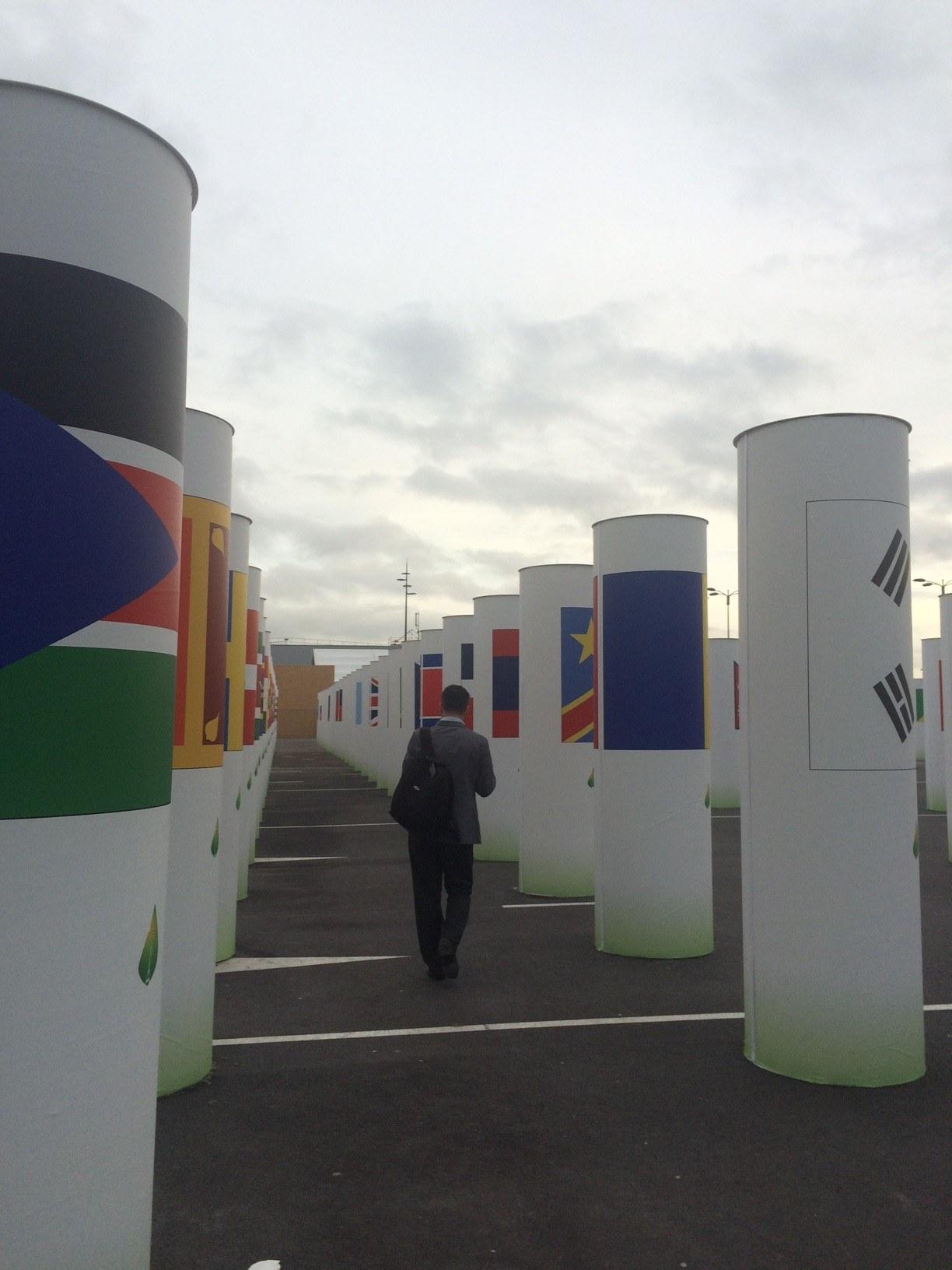

While the above feels like a headline I've drafted a dozen times before, the business case for climate action remains stronger than ever. However, here at COP21 countries continue to quibble over the funding and implementation of the $500 million Green Climate Fund. More specifically, for companies operating internationally (i.e., almost every company that manufactures a product of any kind these days), clear price signals and a long-term policy actually make it easier to conduct business.
Letitia Webster, global director of corporate sustainability for VF Corp., explained to me in Paris, where she is lobbying in favor of a strong commitment to climate eradication, that global regulations are absolutely necessary for her organization's forward planning. "We need predictability across globe because we lack certainty in the U.S. We have goals for reducing carbon, but we need to know what the rules are going to be."
VF Corp., a holding company for apparel brands including Timberland, The North Face, Reef, Vans, Wrangler and many more, has operations in 150 countries and a supply chain running through 70 countries including India and Bangladesh. This means it has an absolute economic imperative to monitor and ideally reduce impacts of climate change. For VF, it is a no brainer.
Webster shared an example from VF's U.S. headquarters to demonstrate how an uncertain policy environment can wreak havoc on the company's business decisions. The company usually uses a two-year payback to approve new capital investments. North Carolina's state legislator recently put the kibosh on renewable tax credits, which throws off all of VF's calculations on payback for efficiency upgrades and renewable installations for its headquarters. With hundreds of miles of conveyer belts moving around the world, this uncertainty means stagnation for improvements that could otherwise take place.
That's why VF is in Paris lobbying with Ceres, alongside six other apparel companies, in favor of:
"strengthening mechanisms in the climate deal to ensure net-zero greenhouse gas emissions well before the end of century,” including assurances that national climate commitments are strengthened every five years, starting in 2020. It also highlights the importance of "adaptation funding to build climate-resilient economies and communities."
The issue of the the adaptation fund, also known as the Green Fund, is a testy one, with everyone in favor until it comes time to pay the bills. The idea is that developed countries -- which caused the bulk of climate issues -- should finance adaptation and recovery for developing countries that stand to encounter the worst impacts.
Oxfam’s head of advocacy and campaigns, Celine Charveriat, said: “Climate funding is the glue that will make the Paris agreement stick. It will be the difference between a minimalist agreement and one that starts to deliver for the world’s poorest people.”
The issue of the developed world funding recovery from climate change impacts continues to be a key issue at the COP21 talks. In addition to mitigation and adaptation, "loss and damage" has become a key sticking point for the developing nation blocs. Developed countries dislike the term because it invokes a legal responsibility to act. As reported in Grist, "Rich countries adamantly do not want even the specter of admitting liability and compensation obligations for the effects of climate change." This is a non-starter with the U.S. Congress' Republican majority chomping at the bit to eradicate any responsibility for climate change adaptation, mitigation or even acknowledgement.
But recovery and economic development in the global south hinge on a fair response to climate change. While some countries quibble over the expenses and the responsibility, business leaders look to clean energy, energy efficiency and sustainability as the drivers of innovation and economic growth. By showing up in Paris to lobby for action, businesses send a message to global policy leaders that climate action doesn't have to mean negative economic impacts. As Webster puts it, "We're here to say climate policy is good business." We wish the documents coming out of the climate talks would be so clear and simple!
Stay tuned here for further discussion as the climate talks move forward. Missing something? Get caught up here.
Image credit Jen Boynton
How Sports Can Help Address Climate Change


By Neil Hawkins
The next few decades will prove pivotal for mankind and for the planet.
The impact of climate change on our economic, social and environmental health is coming ever sharper into focus. Poorer countries are estimated to feel the brunt of this impact as our population nears 9 billion by 2050, spurring an increase in global demand for food by 60 percent and global energy use by two-thirds.
To build a better, more sustainable world, we must all change the way we live, work and play.
We must recognize that the incremental costs of an additional degree of warming will be the recurring kind and not a onetime penalty, impacting business growth every year as agricultural supply chains wilt or shift and migration disrupts employment and consumption patterns.
That cost – which would be largely borne by business – is projected to reach $700 billion by 2030. Every year.
As world leaders, government officials, business chiefs and others converge in Paris, there’s increasing hope that we will have a collective New Year’s resolution for 2016: a universal agreement to slow, stop and reverse climate change. This will drive everyone to work together to push forward faster and deeper efforts to curb climate change and help stem associated threats such as food safety and security, livelihoods, inequality and human rights.
Business efforts are already playing a central role and will continue to be critical. For all those organizations that have been touting corporate social responsibility commitments, now is the time to step forward and knit them together to become a powerful force for positive change. We must search for solutions at the local and global levels. We must learn to work together again. And we must continue to do our part, while using the power of our products and people to ensure a sustainable future.
For our part at Dow, we will do what we do best: innovate, adapt and collaborate -- courageously.
As a science-based solutions provider for more than a century, Dow combines the power of science and technology to drive innovation and help solve global challenges such as climate change. Earlier this year, we established a new set of sustainability goals to further refine how we envision the role of business in society; that business must help lead the transition to a sustainable planet and society. To start activating that vision, we are embedding sustainable factors into every single point of impact – through our footprint (internal operations), our handprint (sustainable solutions) and our blueprint (courageous collaborations).
Like our #EnergyBag that helped divert non-recyclable plastics from landfills and convert them into synthetic crude oil. Or our commitment to account for the value of nature in business decision-making on a global business scaled to generate $1 billion of net present value by 2025.
Another key sector where we are influencing change is in the world of sports.
Global sports events like the Olympics serve as an important opportunity to build momentum and catalyze social and environmental change. For many host cities, the games represent a time to refresh dated infrastructure, improve public transit and push development reform to shine a global spotlight on local economies and improve quality of life.
As the official chemistry company of the Olympic Games, Dow partners with organizing committees and host cities to create sustainable legacies through infrastructure improvements and behavioral change campaigns.
For the 2008 Beijing Games, Dow used water solutions and technology to provide adequate safe water access for the Games and thereby, creating a long-term, positive impact on the city’s drinking water supply. In 2013, Dow partnered with the Sochi 2014 Organizing Committee to implement economically viable low-carbon technologies in Russia, making the Sochi 2014 Olympic Winter Games the first in history to mitigate its entire direct carbon footprint prior to the Opening Ceremony.
Building on our work in Sochi, we have designed a tailor-made program for the Rio 2016 Olympic Games, including low-carbon and energy efficient technologies that can address Brazil’s and Latin America’s needs for years to come while helping mitigate the Games’ direct emissions. Partners in this program include Farmers Edge and Irriger, organizations that provide farmers in Mato Grosso with technologies to optimize productivity in corn and soybean crops while minimizing environmental impact; Roncador Group, a leading organization in farming and livestock in Mato Grosso; and some of the leading manufacturers of insulation solutions in Brazil, in an effort to disseminate knowledge and technology for more energy efficient construction throughout the country to help build long-term sustainable agricultural and manufacturing infrastructure.
We must also target human behavior and habits to shift consumer perception and use of our natural resources. So we’re partnering with Rio 2016’s Transforma program to educate four million school children in Brazil on chemistry, physics, mathematics, biology and sustainability and climate change.
A core commitment to advance the wellbeing of humanity by helping lead the transition to a sustainable planet and society is what’s driving us forward. We recognize that creating innovative products is not enough to build a world where sustainability is status quo. And we’ve put our stake in the ground.
Now the delegates converging in Paris must annotate this moment in time to turn the page. Together, we can and must push the boundaries of innovation, collaboration and public discourse to correct course on climate change. The costs are high. And the time to act is now. Dow is ready.
Image credit: Flickr/Oliver Hopkins
Neil Hawkins is Corporate Vice President, EH&S, and Chief Sustainability Officer for the Dow Chemical Company.
Supermarket Chains Fail on Promise to Open in Food Deserts


Love or hate the idea, Michelle Obama’s Let’s Move! initiative, like other past first lady pet-projects, falls in the tradition of improving social good. Previous first ladies have advocated for issues including mental health awareness, drug abuse, literacy and, in Ms. Obama’s case, the improvement of public health through instilling better eating habits. Considering the struggles many Americans have with heart disease and obesity, the cause is a noble one. One result of Ms. Obama’s advocacy is the Partnership for a Healthier America, which espouses a variety of goals to make Americans more active and make better eating choices.
One of the aims of Partnership for a Healthier America was to open more supermarkets in America’s food deserts: areas that lack grocery stores and other options for fresh, healthy food. Like many initiatives that involve corporate responsibility, this idea attracted all kinds of attention. Many retailers promised to open stores that would expand options for fresh food in poorer neighborhoods. As as is the case with many big ideas (such as the activity around the current COP21 talks), the quest to expand better food options inspired a lot of “me too!” activity, as food companies pledged that they would take action so that 18 million or so Americans could have easier access to supermarkets and, most importantly, healthful food.
But as a recent Associated Press analysis explains, following the hype around this announcement in 2011, very little has happened. Of the 2,400-odd grocery stores that have opened the past four years, less than 10 percent of them are in these so-called food deserts.
One question, of course, is whether this is really a problem at all. Some evidence suggests that getting more fresh meats, dairy, fruits and vegetables into poor neighborhoods really does not cure the health problems associated with poverty. And some companies have tried to base themselves in neighborhoods lacking grocery stores, only to fail. Unfortunately, this problem has less to do with the neighborhoods than with the way in which supermarkets operate.
For example, take Tesco’s Fresh and Easy, which opened with much fanfare across central and southern California almost a decade ago. Neighborhoods such as Hollywood and Eagle Rock/Mount Washington in Los Angeles, as well as downtown Fresno, suddenly had a full-service grocery store. But the nicely laid-out, clean stores, with well-priced items, had several problems.
Many shoppers found the chain neither fresh nor easy. Never mind the fact that many shoppers found the automated check-out lines annoying and confusing, or that the sample corner often looked as if it were warehousing last week’s samples. Like many chains, including Trader Joe’s and Whole Foods, Tesco standardized its product offerings across all of its stores. So, while that organic masala curry sauce may have been a hit in Eagle Rock with Occidental College students down the street, it was a miss in many other stores. Other customers, expecting fresh food, instead saw produce so over-packaged that even Trader Joe’s would blush, and simply moved on.
And while the corner store in that underserved neighborhood may be criticized for having higher prices and less of a selection, the chances run high that it knows what its customers buy — like the many corner stores serving the immigrant Armenian populations in Glendale, Little Armenia and a few hours north in Fresno. But the business model of many supermarkets do not take into account the demographics of individual neighborhoods. Sadly, your closest Costco will probably be more inclined to serve local products and understand the ethnic makeup of your community rather than its competing supermarket chains.
Unfortunately for these communities, the odds of a large grocery store opening up in these areas is becoming slimmer. The food retail industry is in flux, with more mergers underway and profit margins become thinner as the Krogers and Safeways of the world cope with consumers who increasingly buy their groceries at the likes of Target, and of course, Walmart or even Amazon.
Nevertheless, there is a chance at developing some creative ideas here. Depending on now 'food desert' is defined, that closest grocery store is still only one to three miles away. True, that is hardly convenient when you are grocery shopping for a family of four, but the sharing economy has an opening here. Why can’t Lyft and Uber partner with chains that claim to have a social mission, such as a Kroger’s or Publix? These companies can work together on making it affordable to get from these underserved neighborhoods to these food oases. Or, bring the store to these neighborhoods: Take a play from the food trucks’ playbook, and schedule drives to these neighborhoods with basic staples, as well as fresh produce. Will these ideas work? Who knows; they have not even been tried. But surely a compromise can be found, because considering the costs of opening a store, hiring staff and maintenance, no business will open in a location unless it can make that 1- to 3-percent profit margin and be profitable after eight to 10 years.
Food deserts and oases aside, these companies that made promises should be held accountable. The challenge, however, is that the Partnership for a Healthier America’s list of partners reads more like a who’s who of academia and food brands, with retailers lacking. And the organization’s news releases are more of a public relations love-fest than suggestions of real, workable solutions. As with many noble causes, the ideas are good, but the execution is lacking.
Image credit: The White House (Flickr)
Thai Union Puts Freeze On Bumble Bee Acquisition
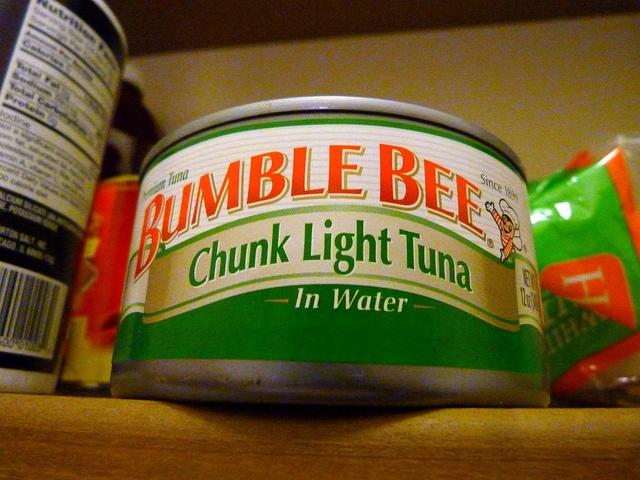

Concerned American tuna consumers have something to rejoice about. Thai Union Group (TU), a company linked to human rights and environmental abuses within Thailand's tuna industry, recently announced it terminated its acquisition of American canned tuna company Bumble Bee Foods.
TU announced in December 2014 that it agreed to acquire Bumble Bee. TU and the Lion Capital “vigorously advocated the merits of the deal to the U.S. Department of Justice,” as stated in a press release, but it concluded that it was unlikely to receive clearance in the stipulated time in the share purchase agreement.
“We have put a lot of efforts to get this deal approved. However, we also recognize that the clearance is now unlikely due to a higher level of complexity in the process,” said Thiraphong Chansiri, president and CEO of TU. “We have decided to focus our energy on our existing business. Thai Union remains committed to the North American seafood market.”Greenpeace launched a campaign to improve the tuna industry, targeting TU because the company is the world’s third largest seafood company. It produces nearly a fifth of the global tuna supply, and about 40 percent of all Thai tuna is sold by TU. As a recent Greenpeace report puts it, “Every second, the company exports the equivalent of about 157 cans of tuna from Thailand.”
TU's decision to back away from the acquisition of Bumble Bee tuna is “good news for consumers globally,” said Greenpeace USA oceans campaigner, Kate Melges, in a statement. “Thai Union has been linked to far too many serious labor abuses and destructive fishing practices to be taking on new brands without sorting out its existing problems."
Thailand's tuna industry is rife with human rights abuses and environmental destruction
The Greenpeace report reveals just how bad the conditions are in Thailand’s tuna sector. The report links the Thai industry to human trafficking, debt bondage, child labor and forced labor. Tuna workers also regularly suffer from a slew of human rights abuses and labor violations. There are human rights abuses perpetrated against those who help catch the tuna and those who process it. “Research indicates that egregious human rights and labor abuses are also present in tuna supply chains,” the report states.Thai Union owns the popular American canned tuna brand Chicken of the Sea. Earlier this year, reports by the Associated Press and New York Times revealed the human rights abuses that are part of the Thai tuna industry. The AP investigation revealed that slave labor is part of the industry, tracking 40 Burmese slaves who worked on tuna vessels. The New York Times investigation discovered that labor abuse at sea “can be so severe that the boys and men who are its victims might as well be captives from a bygone era.”
A 2014 U.S. State Department report ranked Thailand as a country that is a “source, destination and transit country for men, women and children subjected to forced labor and sex trafficking.” The report found that many are exploited in the Thai fishing industry.
Environmental destruction is also tied to the Thai tuna industry, according to the Greenpeace report. There is evidence that Thailand’s fish stocks have greatly declined over the last 50 years. There is a link between the dwindling fish stocks and the human rights abuses in the tuna industry. Since the yields are “increasingly poor” in Thai territorial waters, as the report points out, there is pressure put on the operators of fishing vessels: They are forced to go further out for longer periods of time “using unsustainable methods.” So, vessel operators have turned to human trafficking networks to supply their crews and decrease labor expenditure.
Image credit: Flickr/Rusty Clark
Novartis reaches antimalarial treatment milestone


Pharma company Novartis has supplied 300m antimalarial treatments without profit to treat children suffering from malaria.
The Swiss drugs giant has been delivering treatments since 2009, helping to reduce the disease burden for children in more than 30 malaria-endemic countries, using Coartem Dispersible which was developed by Novartis in collaboration with Medicines for Malaria Venture (MMV) specifically to meet the needs of children (weighing 5kg and above).
“This milestone underscores our long-standing commitment to the fight against malaria and to the children who are most at risk from the disease,” said Joseph Jimenez, CEO of Novartis. “We are proud of the part we have played in helping to reduce childhood deaths from malaria. And we continue to provide medicine at no profit to people who need it, contributing to the goal of a world free from the disease.”
Dr David Reddy, CEO of MMV, added: “The WHO World Malaria Report 2015 shows that we are making significant strides in reducing child mortality from malaria, and this is largely thanks to sustained international commitment and the availability of a range of innovative tools and solutions, including quality child-friendly medicines like Coartem® Dispersible.”